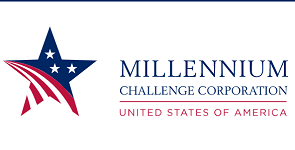The U.S. government’s Millennium Challenge Corporation (MCC) launched on Tuesday its new Inclusion and Gender (I&G) Strategy today, deepening its commitment to foster inclusive economic growth in partner countries.
The new I&G Strategy outlines how MCC will routinely and systematically integrate gender and inclusion into its grant programs to increase the ability of poor people, women, and other marginalized groups to access, participate in, and derive benefits from its investments. “Our Inclusion and Gender Strategy is grounded in MCC’s founding mission and our belief that development and economic growth must be inclusive,” said MCC CEO Alice Albright.
“Marginalized groups often face structural economic, social, and political barriers that prevent them from accessing the benefits of economic development and improving conditions. Incorporating a systematic and routine focus on gender and inclusion into all aspects of our programs will help MCC and our partners alleviate poverty for those facing structural exclusion”
Led by MCC’s gender and social inclusion team, the agency will focus on four key priorities:
• Integrating inclusion and gender considerations in its analytical tools;
• Integrating inclusion and gender considerations into all stages of program development and implementation;
• Supporting policy and institutional reforms that enhance inclusive growth; and,
• Leveraging public and private partnerships that will generate inclusive economic opportunities to support MCC’s activities.
“Through direct investment, technical assistance, and policy and institutional reforms, we will work with our partners to implement a robust integration of gender and inclusion considerations into our work with the goal of addressing structural exclusion,” added Albright.
The term ‘structural exclusion’ refers to the persistent — and often systemic and institutionalized — barriers to economic, social, and political opportunities that certain groups face in a society.
The structural exclusion of specific groups exacerbates poverty makes these populations less resilient to external shocks such as climate change, food insecurity and COVID-19.
MCC has a long history of addressing structural exclusion and gender-based inequalities in its programming. Building on its 2006 Gender Policy, the agency has made significant efforts to integrate gender considerations into its country selection, analytical approaches, program design and implementation.
These efforts have resulted in grant programs that address gender inequality and other forms of social exclusion in areas such as education, health, agriculture, and land tenure.
In Senegal, MCC’s $550 million grant is investing in electrical infrastructure in the southern and central regions of the country — areas previously excluded and with high rates of poverty and unemployment.
As part of the $460.5 million Morocco Employability and Land Compact, MCC is working with the Government of Morocco to expand women’s land rights, support the establishment of a Center for Women’s Inclusion in Land Rights, and implement legal changes that allow women heirs to inherit land and acquire land titles.
The Millennium Challenge Corporation is an independent U.S. government agency working to reduce global poverty through economic growth. Created in 2004, MCC provides time-limited grants and assistance to countries that meet rigorous standards for good governance, fighting corruption and respecting democratic rights.

